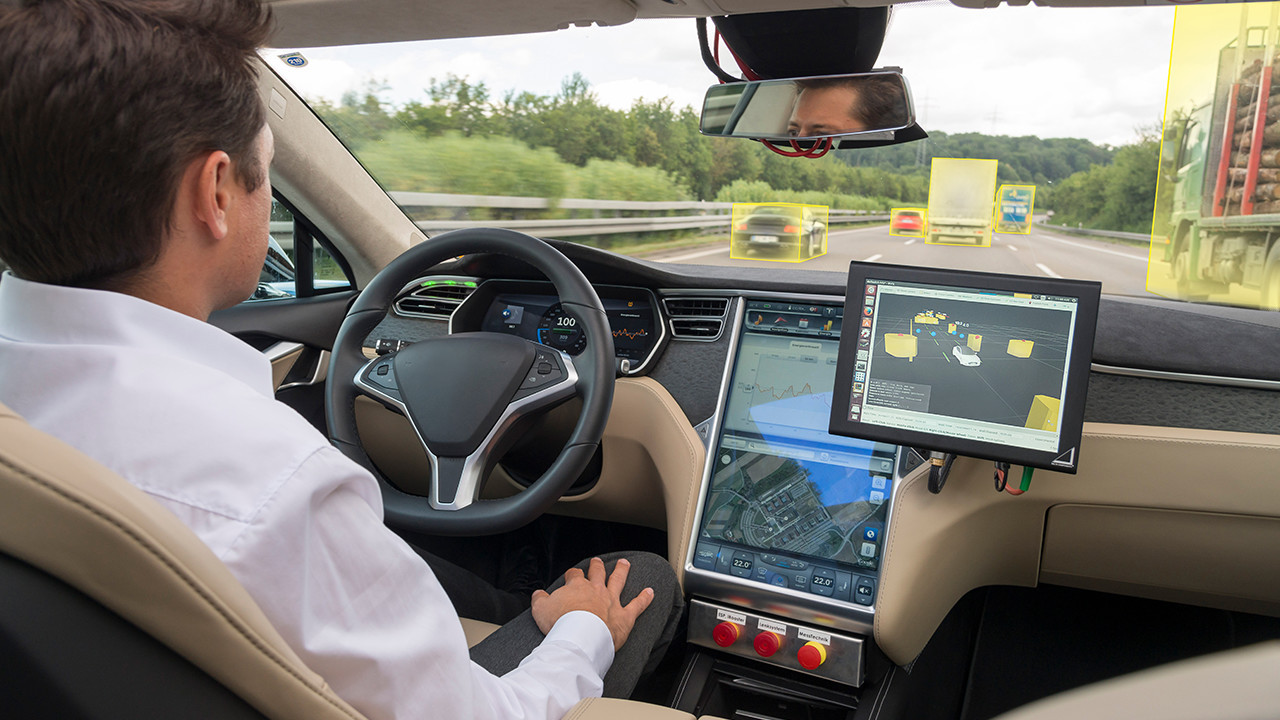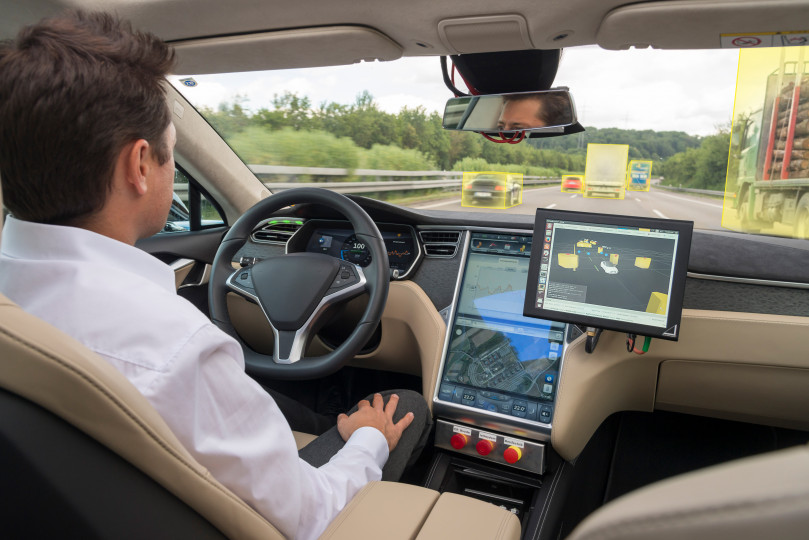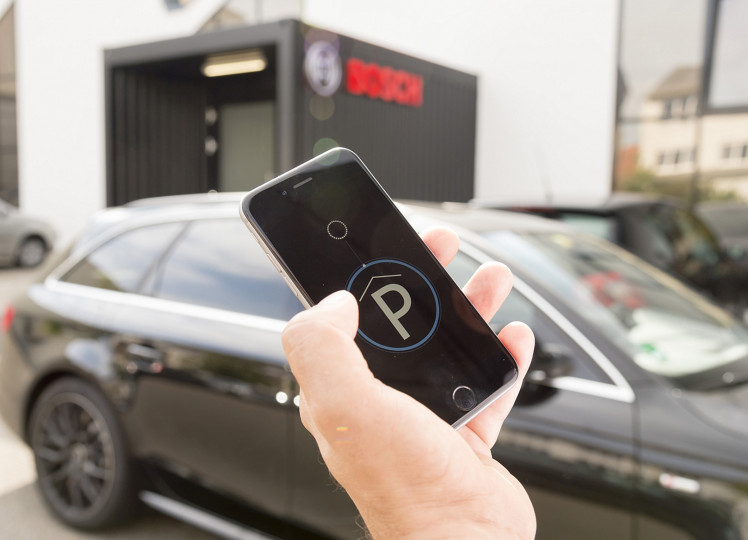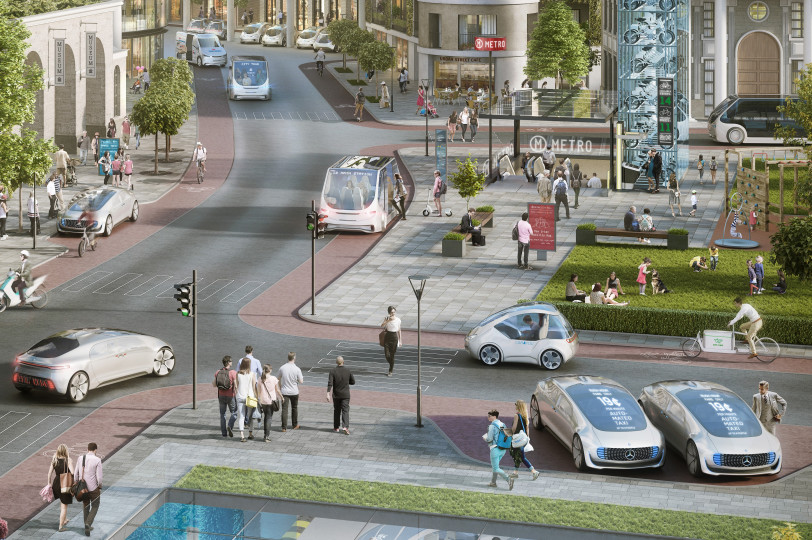The overwhelming majority of drivers would like to have their self-driving cars take over some of the most cumbersome tasks and take care of the most stressful functions of driving. It is primarily for parking, and the nerve-racking inching forward in congestions, that most respondents would like to task their cars with, according to the findings of a survey conducted by Bosch among nearly 6,000 car drivers with valid driving licences in six countries, including Brazil, China, Germany, France, Japan and the United States. A thousand persons aged 16 or over, participated in the survey in each of these countries.
As was personally experienced by the participants of the Bosch Mobility Experience 2017 event in July this year in the small town of Boxberg, automated driving turns drivers into relaxed passengers you would expect to see in a science fiction adventure, while cars turn into calm and prudent drivers. Vehicles will soon be able to take control from humans upon a mere push of a button even on public roads, ensuring that all traffic rules and speed limits are properly observed, instantly turning transport safer for all stakeholders.
Anyone may have encountered self-driving cars doing test runs on the roads and streets of Budapest a well, since mid-July this year. Such automated vehicles will, in a few years, be regarded as a quite everyday thing on Hungary’s roads, and all over the world. And since attitude shaping in anticipation of future developments cannot be started all too soon, Bosch conducted a representative survey to assess drivers’ attitude concerning the new technology and their main preferences. It is an important and progressive finding in regard to the spreading and acceptance of automated driving, that the majority of the respondents look at the autonomous technology and the benefits it offers, with trust and confidence.
The majority of the drivers interviewed in the survey see autonomous cars as a development that can relieve some of the stress of the everyday hustle and bustle: most drivers would like, while the car is driving itself, to look out of the window, enjoy the view and relax (64 percent) or chat away with their passengers (61 percent). The most frequent responses in the survey show that automated driving will make travelling by car a lot more comfortable with far less stress behind the steering wheel: the car of the future will relieve drivers of the burdens of steering and pushing the pedals, therefore drivers find it a useful companion primarily on long haul trips (67 percent) and recreational journeys (61 percent). The overwhelming majority of respondents also expect major improvements in convenience (68 percent) and road safety (60 percent), for example in day-to-day situations such as looking for parking spaces. At the same time, Bosch’s survey has also established a ranking order of the most desired self-driving functions: most respondents noted autonomous parking (65 percent), along with automated parking space finding in urban areas (60 percent) as well as less stressful driving in major congestions (59 percent), thanks to the autonomous car.
Self-driving cars may even boost sales
The brand new possibilities offered by automated driving may make new cars more attractive for a lot of customers. Some 54 percent of Bosch’s respondents agreed with this proposition. It was noted primarily by men that the new technological developments may be important in boosting sales: 52 percent of them said that the self-driving technology would make them a lot more interested in purchasing a new car. In view of other conclusions drawn from the survey it seems to be fairly safe to state that the younger a driver the more interested he or she is in purchasing cars with automated driving functions.
Mónika Hack
+36 70 510 5516
Mobility Solutions is the largest Bosch Group business sector. According to preliminary figures, its 2016 sales came to 44.0 billion euros, or 60 percent of total group sales. This makes the Bosch Group one of the leading automotive suppliers. The Mobility Solutions business sector combines the group’s expertise in three mobility domains – automation, electrification, and connectivity – and offers its customers integrated mobility solutions. Its main areas of activity are injection technology and powertrain peripherals for internal-combustion engines, diverse solutions for powertrain electrification, vehicle safety systems, driver-assistance and automated functions, technology for user-friendly infotainment as well as vehicle-to-vehicle and vehicle-to-infrastructure communication, repair-shop concepts, and technology and services for the automotive aftermarket. Bosch is synonymous with important automotive innovations, such as electronic engine management, the ESP® anti-skid system, and common-rail diesel technology.
The Bosch Group is a leading global supplier of technology and services. The company employs roughly 360,000 associates worldwide (as per December 31, 2016). According to preliminary figures, the company generated sales of more than 73.1 billion euros in 2016. Its operations are divided into four business sectors: Mobility Solutions, Industrial Technology, Consumer Goods, and Energy and Building Technology. As a leading IoT company, Bosch offers innovative solutions for smart homes, smart cities, connected mobility, and connected manufacturing. It uses its expertise in sensor technology, software, and services, as well as its own IoT cloud, to offer its customers connected, cross-domain solutions from a single source. The Bosch Group’s strategic objective is to create solutions for a connected life, and to improve quality of life worldwide with products and services that are innovative and spark enthusiasm. In short, Bosch creates technology that is “Invented for life.” The Bosch Group comprises Robert Bosch GmbH and its roughly 450 subsidiaries and regional companies in some 60 countries. Including sales and service partners, Bosch’s global manufacturing, engineering, and sales network covers nearly every country in the world. The basis for the company’s future growth is its innovative strength. At 120 locations across the globe, Bosch employs 59,000 associates in research and development.
Additional information is available online at www.bosch.com, www.iot.bosch.com, www.bosch-press.com, www.twitter.com/BoschPresse, www.bosch.hu







